During the first week of November, 2014 I was at the L.A. Zoo observing the newborn baby hippopotamus called Rosie. She was born on October 31st of that year and was a surprise to everyone including the zookeepers since no one knew her mother was pregnant. That same day I visited, I also came across a newborn chimpanzee and his mother in the penthouse behind where the chimpanzees normally hang out during the day. It was Zoe and her baby Johari (born on Oct. 27). Over the past few years I have gotten to know Johari and the rest of the troop at the L.A. Zoo pretty well. I like the older ones, but I tend to focus on the youngest animals since I like to observe how they are learning things. For the chimps, I focus on the two youngest males Johari and Oliver (born in Aug. 2014) as well as the youngest females Uki, Kima, and Zuri who are a few years older. Johari will always have a special place with me since I have almost seen him regularly since the time he was born. I have had some fun moments interacting with him, like this from a few weeks ago:
Through the rest of the blog I'll show pictures I have taken of Johari as I talk about this new Planet of the Apes movie. If you want to see videos I have taken of Johari and rest of the L.A. Zoo chimps then check out my Law of the Claw Youtube channel. That is sort of a side hobby I have for various reasons I can only hint at here for the sake of brevity.
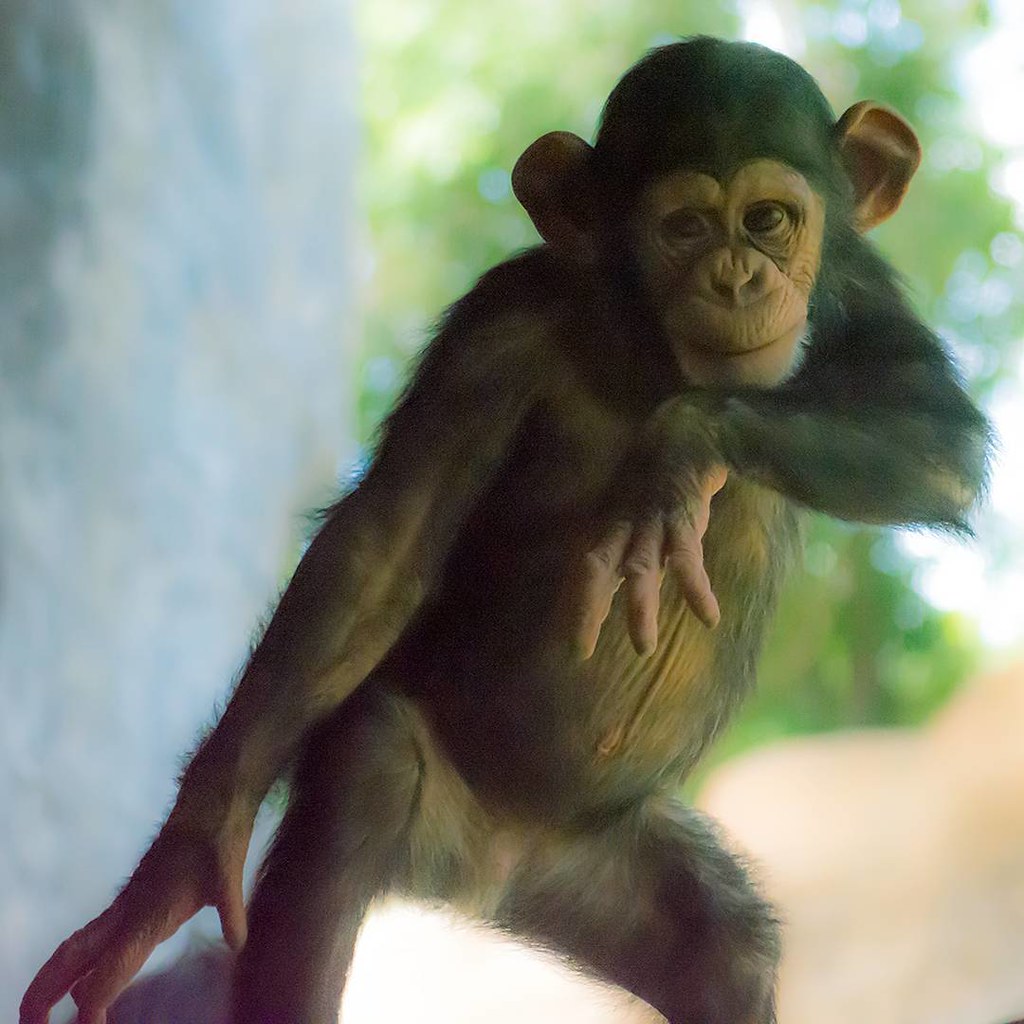
Time to talk about the new War for the Planet of the Apes movie. I like the old Planet of the Apes movies, tv series, and cartoon to some degree. The original is my favorite, but the rest have some good moments in them. That's the way I think about the recent reboot of this series. I like how they have created an alternative universe where the natural history of the planet has gone in a different direction than our own.
The first movie, Rise, was good, but just the beginning. I thought Dawn was rather predictable and have to admit it was a bit of let down for me. I just saw War, and while somewhat predictable, it was a far better movie and much more emotionally satisfying. It is probably true to say that if you took the apes out and replaced them with some other persecuted human group, then you have probably already seen this type of movie before.
Some mild spoilers here, but one of the oddest points of the movie for me was when Woody Harrelson's character is talking about his son and the camera shows a picture of his son. I was looking at that then I noticed something that said, "Whitney Portal" right next to the picture. What's that got to do with this movie? I did get the impression by the end of the movie that the fictional setting might have been the High Sierra, with the Trona Pinnacles, and any desert region in California/Nevada being the ending. Not the real places, but CGI look-alikes. There were some nice scenic shots in the movie, but for some reason in these movies I always get that we are just dealing with a small region and not the whole planet.
As is typical in these type of movies the humans end of being the bad guys which sets you cheering for the anthropomorphic apes in the movie. Human notions of justice, revenge, and mercy play out in the main character, Caesar, in the movie. It was well done, and I hope to see more of these movies as we got to see Caeser's son, Cornelius (who looks a little like Johari, but is in fear most of the times you see him). I would assume that the Cornelius story can be told in future movies with the hope that the apes and future humans can find a way to live in harmony now that the war is over.
With that said....
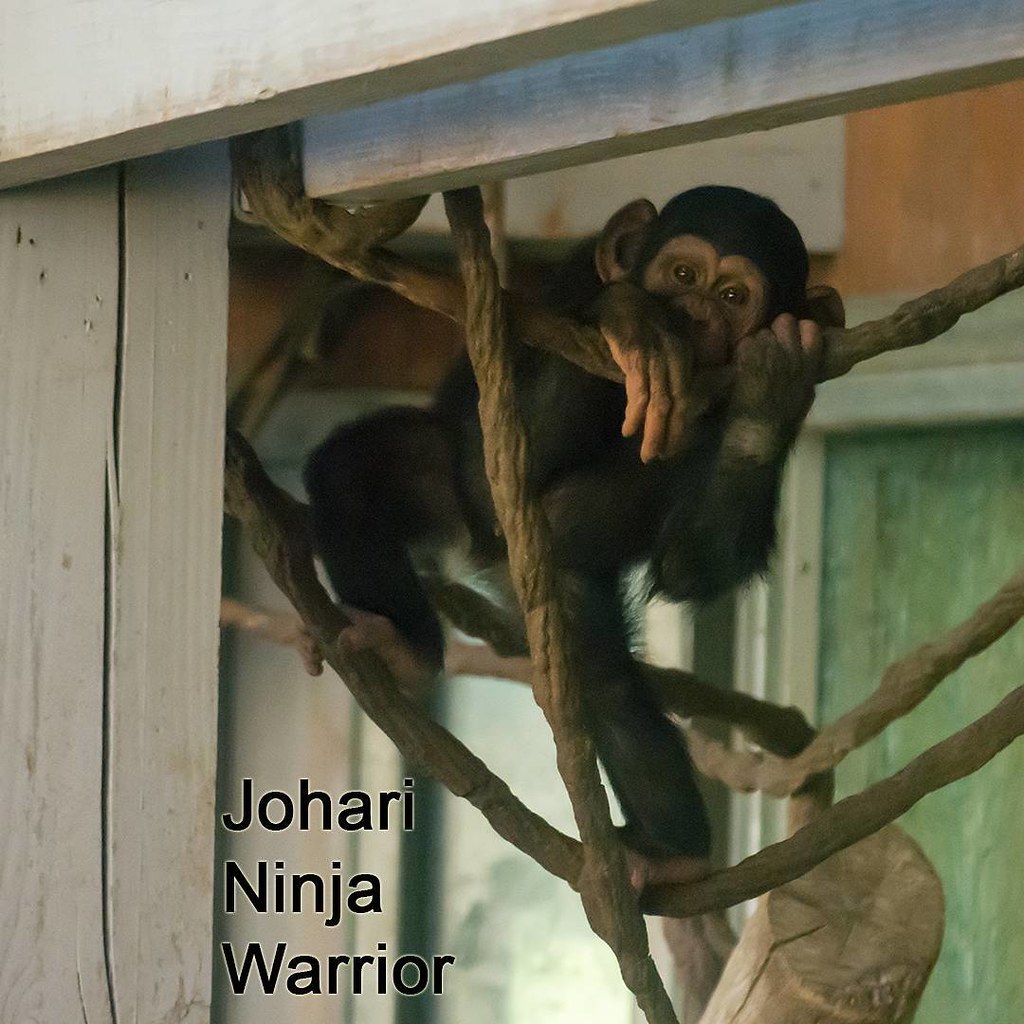
The downside to movies like this is how literal one takes the moral themes in them. I mentioned this before with westerns. Westerns are not really how the west was. Western movies have selectively taken a few events or ideas that may or may not have happened in the old west and created a myth out if it. As I have said many times before, if you really thought what happens in those movies was true then you would think all anyone wanted to do was have gunfights with each other.
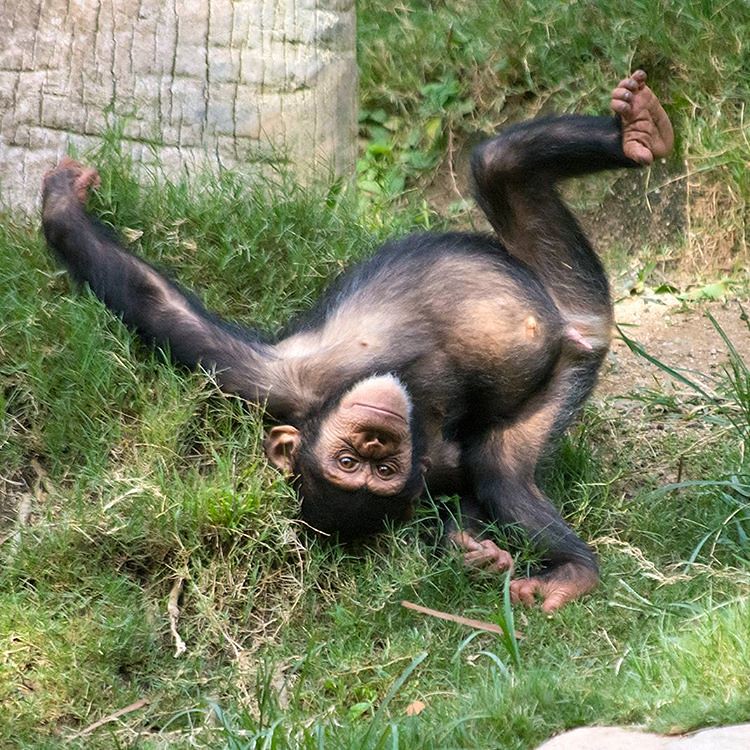
The same with these types of science fiction movies. One of the promos for this movie was done with primate specialist Jane Goodall. I'll link it at the bottom, but in it she mentions that humans do not own the planet, we are just one of the animal species of the world, we're not separate from other animals, that we have a responsibility to preserve harmony in the natural world, we are to be compassionate to all, many creatures have feelings/emotions, suffer pain, etc. She concludes we must understand these things in order to save the world.
First, a standard disclaimer, that none of what I am about to say is to cheap shot Jane Goodall who has done a lot of good work in bringing knowledge about primates to the rest of the world. It has been some years, but I have read one of her earlier books on the chimpanzees she was studying. Ms. Goodall is great if you want to learn about primates because of her expertise in that area.
In the promo she voiced over that I highlighted some of the ideas above, most of the ideas at first glance seem to be reasonable. In the big picture of things I would agree with what she is saying. However, if we take what she said too literally then I would have problems with that. As I like to say, the assumptions are always the killers, meaning that the statements above are assuming things that once you really find out what is really meant you will see some pretty crazy things are being said. As they say, the devil is the details, or the distinctions that are so important in these types of discussions are not being made.
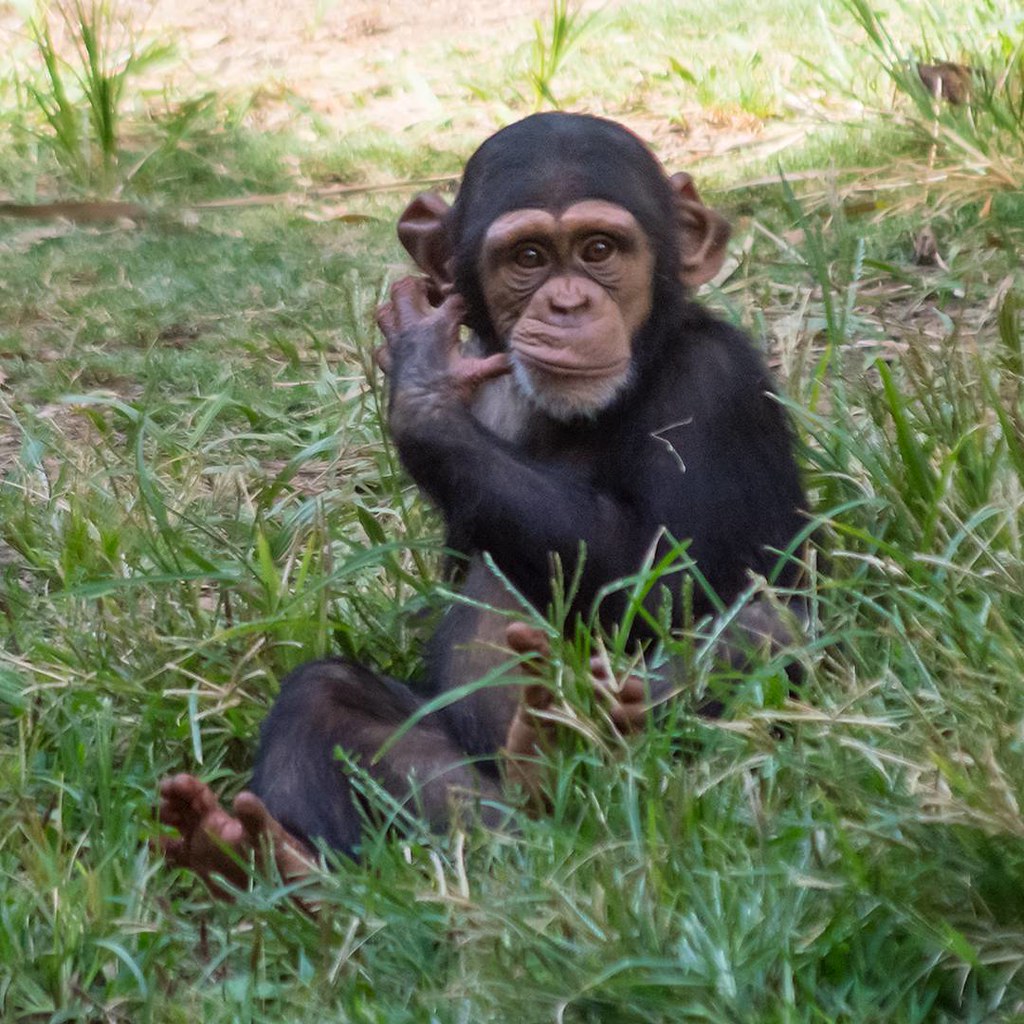
This blog would go on way too long if I try to tackle everything that she said, but let me say something about the idea we must preserve harmony in the world. I'm not sure the world prior to humans had anything like what is meant by "harmony in nature". From the beginning there has been a struggle for existence. This has been a major theme in biology for the past 150+ years or more with the writings of Charles Darwin being the most influential on this issue. The notion that we can somehow not only change human behavior in this regard, but animal behavior too is just weird. Now if we are talking more about creating some balance in the world that would make more sense to me. That way you are sustaining and preserving animals, ecosystems, etc., but I would hardly call that harmony since death and suffering will still happen.
The second idea I wanted to say something about is the notion that humans are no different than any other species. Yet, for some reason, we are responsible in some way for the rest of the world that other species are not. There is a major hang up here that I see all over the internet when I see articles about an animal killing a human and someone says, "we cannot blame the animal." Of course, you can't blame an animal because an animal is not a MORAL AGENT! An animal is not capable of right or wrong it is just doing what it naturally does. Yet, when a human kills another human we assign him or her moral blame because he or she is a moral agent who has done wrong by committing intentional murder or unintentional manslaughter.
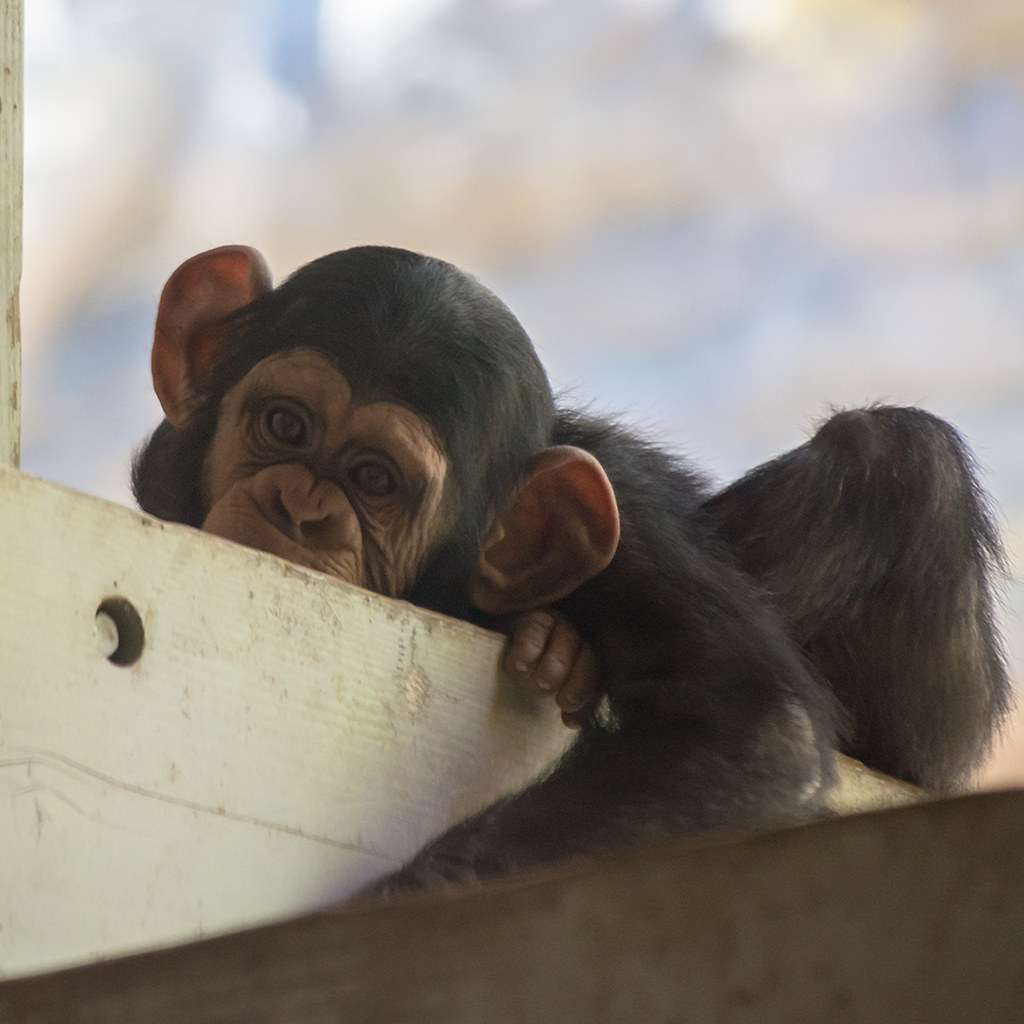
To be a moral agent there are three things that work synergistically (together at once). One, you have to be able to posses some level of freewill. That you have the ability to make choices and not something (beyond you) causing you to make choices. Two, the ability to reason in a propositional way. Meaning, you have the ability to justify your beliefs, not just problem solving. Three, you have a moral sense of right or wrong. Moral intuitions, conscience, etc. guide a person. All three (free will, rationality, and morality) work together in person making him/her a moral agent. Animals typically follow their desires and not reflect on moral issues like this. I've read books by those in the biological sciences (ex. Frans de Waal, Marc Bekoff) that try to give an account of animal morality. What typically happens is the concepts I have just mentioned are usually redefined in way that ends up being not the same thing. Although, in fairness to the two authors mentioned, it is typically in the last chapter of their books where they will say that human moral agency is different than the what they have discovered in animals.
The reason I bring this up, the foundation of how we treat other animals from an animal welfare perspective is how we treat other humans. Our obligations to other humans is key. It is first and foremost. A good person will be good to animals because he/she is good to other humans. However, a person that is good to animals does not necessary mean that person is good to humans. There is a value distinction between humans and non-human animals. Humans have infinite value as moral agents. Animals have value too, but not the same level because they are not moral agents. I'm going to link a Dennis Prager video below that argues slightly differently, but mirrors what I am saying.
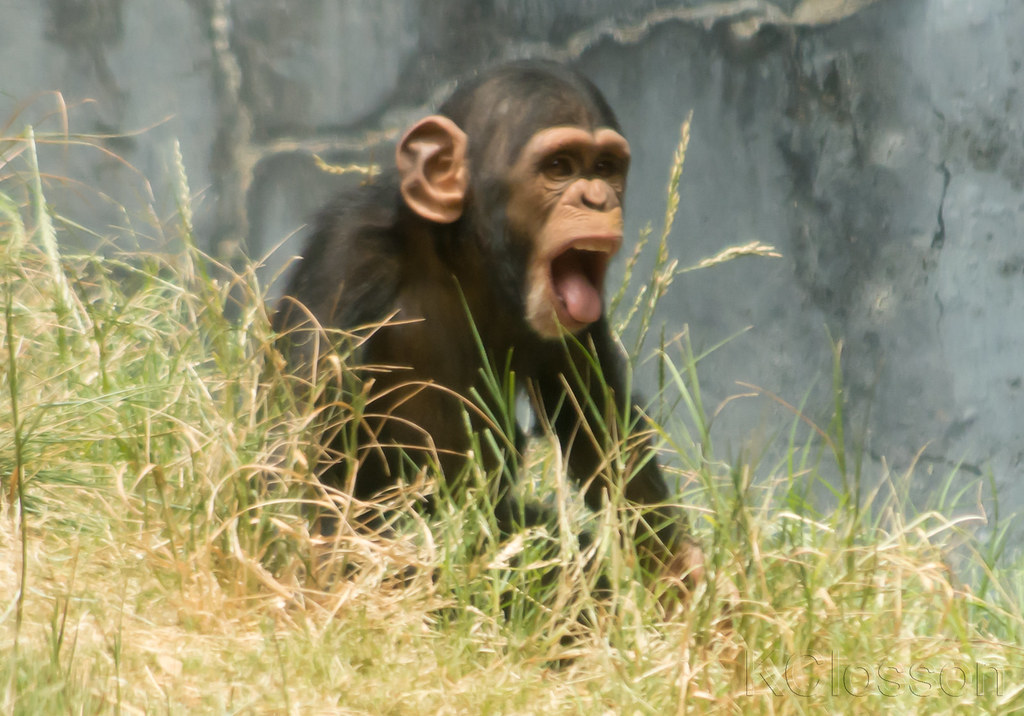
So, I love Johari with every ounce of my blood along with a lot of other animals I have encountered. Insult my buddy Johari and I might go Clint Eastwood on you! ;) In seriousness, you can love your pets in this subjective way, but objectively you do have moral obligations and are responsible for other humans even if you do not love them in the same way.
Jane Goodall "Compassion" for War of the Planet of the Apes
Dennis Prager, "Are Humans More Valuable than Animals?"
A few of my Johari and other chimps vids:
Johari Ninja Warrior
Thanksgiving with Oliver with Johari Cameo
Chimpanzee Mixed Martial Arts
Roughhousing
Little Oliver and Johari
Two old blogs for the original Planet of the Apes Locations:
"On Earth All Along"
Planet of the Apes Village
